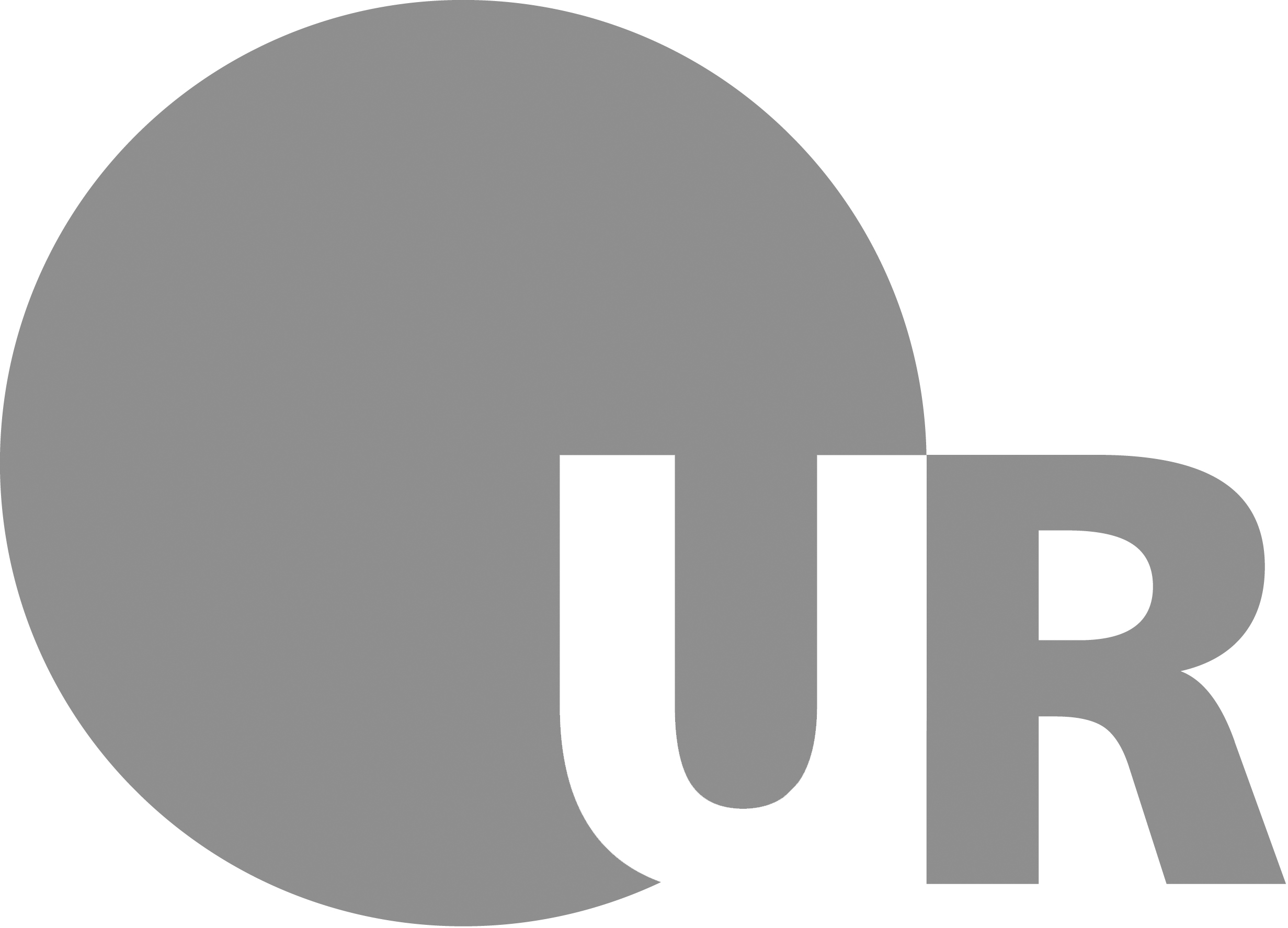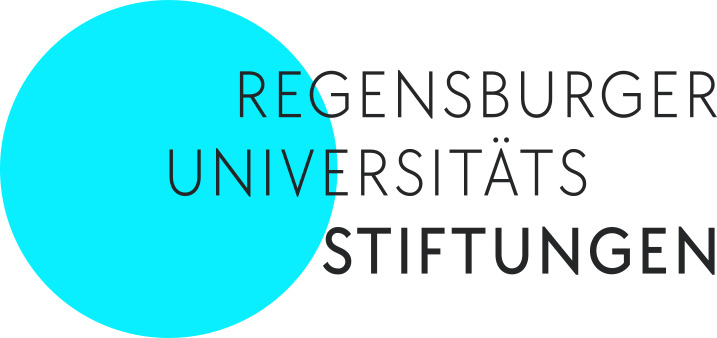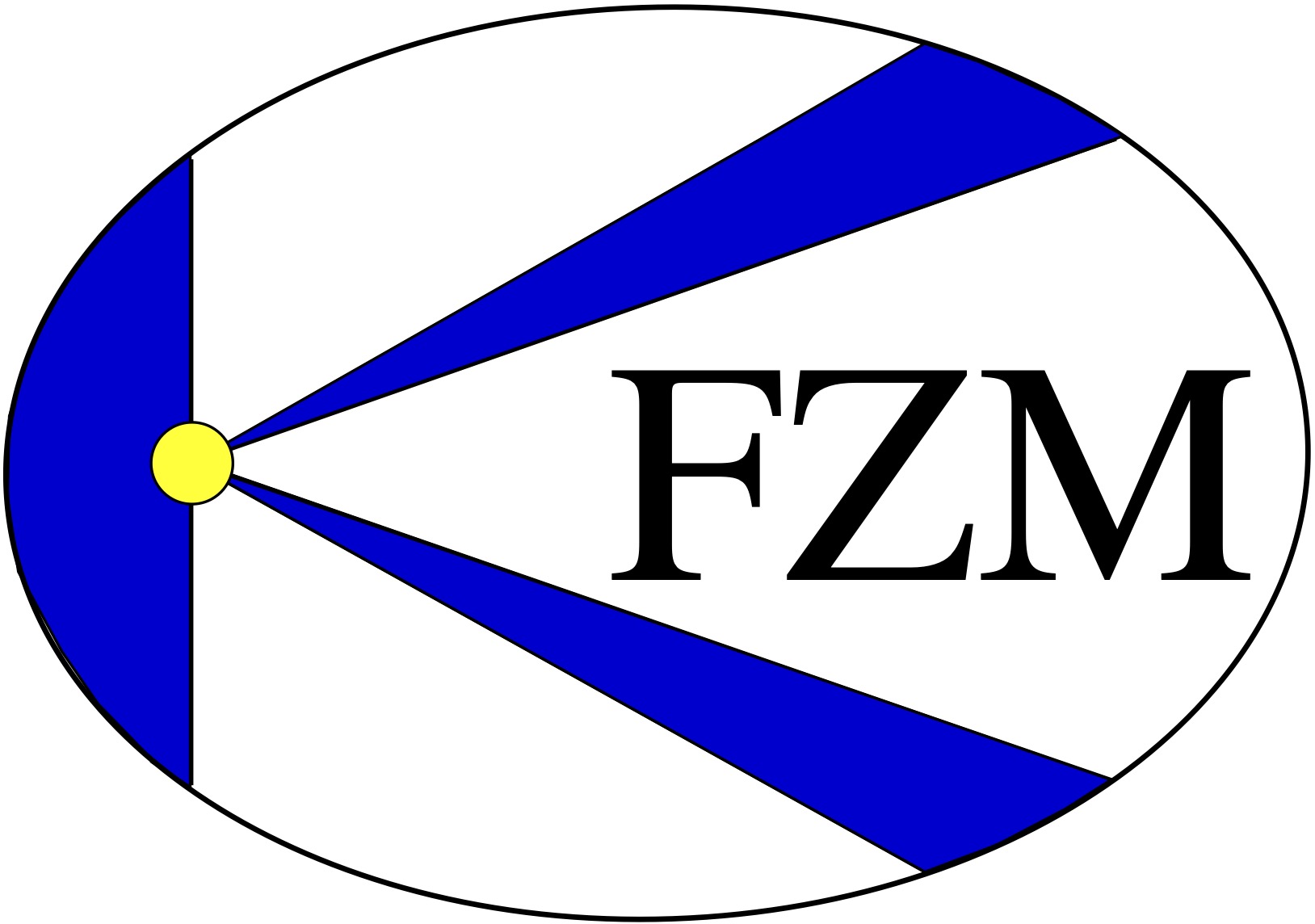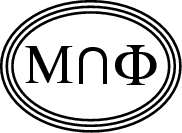Schedule
The lectures will all take place in the lecture room H31 in the mathematics building (“Mathematik” on the campus plan). Some of the lectures and discussions will be broadcast via Zoom at this link or
Meeting-ID: 655 9793 5368, Passcode: CFS2025
Monday: Introductory school
8:15-9:00: Registration in seminar room M104. Registration is also possible later during the coffee breaks in room M104. You can also contact the conference secretary, Ms Ferstl, in her office M226.
| Introduction to Causal Fermion Systems | |||
| 9:00-9:45 | Jan-Hendrik Treude | Mathematical Preliminaries (measures, Hilbert spaces, operators, manifolds) | Slides, Video |
| 9:45-10:30 | Claudio Paganini | Motivation in examples | Slides, Video |
| coffee break | |||
| 11:00-11:45 | Felix Finster | General definition of a causal fermion system, the causal action principle, the Euler-Lagrange equations, the linearized field equations | Video |
| 11:45-12:15 | Christoph Krpoun | Discussion and questions | |
| lunch break | |||
| 14:00-14:40 | Robert Jonsson | Inherent structures I (spin spaces, physical wave functions, the kernel of the fermionic projector) | Slides, Video |
| 14:45-15:30 | Sebastian Kindermann | Correspondence to classical spacetimes | Video |
| 15:30-16:00 | Moritz Reintjes | Discussion and questions | |
| coffee break | |||
| 16:15-16:40 | Simone Murro | Inherent structures II (surface layer integrals and conservation laws) | Slides, Video |
| 16:45-17:15 | Patrick Fischer | Basics on the continuum limit | Slides, Video |
| 17:15-18:00 | Christoph Krpoun | Discussion and questions | |
| break | |||
| 19:00 | Shane Farnsworth, Antonino Marcianò, Barbara Šoda | Outreach event | |
Unfortunately, due to technical problems, the first videos of the school were not recorded. Here are links to videos of the online course covering part of the material:
Tuesday: Geometry
| Quantum spacetime structures. Chairs: Wojciech Dybalski, José M. Isidro | |||
| 9:00-9:20 | Felix Finster | Welcome and overview of geometric structures of a causal fermion system | Slides, Video |
| 9:20-9:50 | Renate Loll | Causal Dynamical Triangulations: Lattice quantum gravity reloaded | Slides, Video |
| 10:00-10:30 | Thomas Thiemann | Canonical quantum gravity | Slides, Video |
| coffee break and poster session | |||
| 11:00-11:30 | Daniele Oriti | An outline of tensorial group field theories and of challenges toward an emergent spacetime | Slides, Video |
| 11:40-12:10 | Frederic Schuller | Constructive gravity | Slides, Video |
| lunch break | |||
| Classical spacetime structures. Chair: Stefan Suhr | |||
| 14:00-14:30 | Clemens Sämann and Roland Steinbauer | Non-smooth spacetimes and Lorentzian length spaces | Slides, Video |
| 14:40-15:10 | Miguel Sánchez Caja | Cone structures and their applications to fundamental theories and discretization | Slides, Video |
| coffee break | |||
| 16:00-16:40 | M1 | Moderated plenary discussion | |
| 16:45-17:25 | P1x | Parallel discussions | |
| 17:30-18:10 | P2x | Parallel discussions | |
| 18:15-18:55 | P3x | Parallel discussions | |
Details on the discussion sessions
- M1: Moderated discussion
Topic: “What mathematical structures should a fundamental physical theory be based on?”
Moderator: Christoph Stephan - P1x-P3x: Parallel discussions
Moderators: Hans Thomas Elze, Max Joseph Fahn, Franz Gmeineder, Niky Kamran, Christoph Minz, Olaf Müller, Clemens Sämann, Roland Steinbauer, Stefan Suhr, Thomas Thiemann
P11 “Quantum versus non-smooth classical geometry”: Daniele Oriti, Clemens Sämann
P12 “The causal action principle as a geometric variational problem”: Franz Gmeineder, Niky Kamran
P13 “Which experiments are promising to constrain QG”: Thomas Thiemann, Max Joseph Fahn
P14 “How does Wick roation work in curved spactimes”: Renate Loll
P21 “Geometric flows”: Franz Gmeineder, Margarita Kraus
P22 “Singular Lorentzian metrics and regularization”: Moritz Reintjes, Roland Steinbauer
P23 “Beyond the Einstein equations: Which modifications are well-motivated?”: Eduardo Guendelman
P24 “What different options do we have for the emergence of classical spacetime”: Christoph Minz,Claudio Paganini
P31 “Limits of spacetimes”: Niky Kamran, Olaf Müller
P32 “Cone structures”: Stefan Suhr, Margarita Kraus
P33 “Which observables are fundamental and which are emergent?”: Claudio Paganini, Daniele Oriti
P34 “Why does the causal action principle give rise to three generations of elementary particles?”: Felix Finster, Frederic Schuller
The topics of many parallel discussions have been proposed by the participants online during the conference. The topics are selected on short notice with an online voting system by all participants.
Wednesday: Cosmology and Particle Physics
Chair: Michael Kiessling
| 09:00-09:30 | Mairi Sakellariadou | Open questions in cosmology | Slides, Video |
| 09:40-10:10 | Eduardo Guendelman | Modified measure theories | Slides, Video |
| 10:20-10:35 | Marco van den Beld Serrano | A baryogenesis mechanism for causal fermion systems | Slides, Video |
| coffee break and poster session | |||
| 11:00-11:40 | P4x | Parallel discussions | |
| 11:45-12:25 | P5x | Parallel discussions | |
| lunch break | |||
| 15:00-17:00 | Guided city tour with visit of Kepler Museum | ||
| 19:00-21:00 | Conference dinner at Brauhaus am Schloss | ||
Details on the discussion sessions
- P4x-P5x: Parallel discussions
Moderators: Eduardo Guendelmann, José Isidro, Michael Kiessling, Antonino Marcianò
P41 “Mechanisms of baryogenesis”: Felix Finster, Maira Sakellariadou
P42 “Is causality fundamental?”: Claudio Paganini
P43“Violations of the Pauli Exclusion Principle and modified measure theories”: Catalina Curceanu, Eduardo Guendelman
P44 “What are good principles for theory development?”: Michael Kiessling
P51 “Cosmology as a laboratory of quantum gravity”: Claudio Paganini
P52 “How do causal fermion systems relate to different approaches to quantum gravity”: Felix Finster, Max Joseph Fahn
P53 “Is regularization physical?”: José M. Isidro
P54 “Can fundamental structures of physics / quantum gravity ever be put to an experimental test?”: Catalina Curceanu
Thursday: Quantum information and quantum field theory
| Quantum information and entropy. Chairs: M. Eckstein and G. Lechner | |||
| 09:00-09:30 | Alessandro Pesci | Semiclassical thermodynamics of spacetime | Slides, Video |
| 09:40-10:10 | Albert Much | Quantum entropies in Quantum Field Theory | Slides, Video |
| coffee break and poster session | |||
| Friday, 09:00-09:30 | Achim Kempf | How to make spectral geometry work | Slides, Video |
| 11:20-11:35 | Claudio Paganini | Causal fermion systems as a web of spacetime correlations | Slides, Video |
| 11:45-12:25 | P6x | Parallel discussions | |
| lunch break | |||
| Quantum field theory. Chair: T. Elze | |||
| 14:00-14:30 | Rainer Verch | Superluminal local operations in quantum field theory: A ping-pong ball test | Slides, Video |
| 14:40-15:10 | Astrid Eichhorn | Probing quantum gravity at all scales | Slides, Video |
| 15:15-15:30 | Moritz Reintjes | The QFT limit of causal fermion systems | Slides, Video |
| coffee break | |||
| 16:00-16:40 | P7x | Parallel discussions | |
| 16:45-17:25 | P8x | Parallel discussions | |
| 17:30-18:10 | P9x | Parallel discussions | |
| 18:15-18:55 | P10x | Parallel discussions | |
Details on the discussion sessions
- P6x-P10x: Parallel discussions
Moderators: Hans Thomas Elze, Robert Jonsson, Gandalf Lechner, Simone Murro, Alessandro Pesci, Wojciech Dybalski, Vincent Rivasseau
P61 “Quantum entropies and modular theory”: Gandalf Lechner, Simone Murro
P62 “What mathematical/physical techniques can be used across approaches? “: Alessandro Pesci
P63 “The use of artificial inteligence in mathematics and physics research (and vice versa)”: Christoph Stephan, Claudio Paganini
P64 “What are topological models of particles? Are knots or braids a good starting point?”: Torsten Asselmeyer-Maluga
P71 “Thermodynamics and spacetime”: Claudio Paganini, Alessandro Pesci
P72 “How fundamental is the Neumann rule?”: Olaf Müller
P73 “Which topological property ($T_0$, $T_1$, $T_2$, discrete, totally disconnected, etc…) should posses a quantum spacetime?”: Simone Murro
P74 “Quantum field theory: Constructive versus perturbative”: Slides by Vincent Rivasseau, Felix Finster
P81 “On the connection between measure theory and Lorentzian Geometry. “: Michal Eckstein, Tomasz Miller
P83 “Is there a fundamental Equivalence Principle?”: Alessandro Pesci
P84 “Does the approach by Fewster and Verch solve the measurement process?”: Felix Finster
P91 “Causal fermion systems yield deviations from usual event causality in the small and in the large. Can the definiton of causality via eigenvalues be modified to better agree?”: Martin Rainer
P94 “Quantum fields and causal fermion systems”: Felix Finster, Niky Kamran
P101 “Cone structures and causal fermion systems”: Felix Finster, Stefan Suhr
P102 “What is the relation between causal fermion systems and a topology change of the underlying space?”: Torsten Asselmeyer-Maluga, Claudio Paganini
Friday: Quantum foundations, collapse and other approaches
| Quantum foundations and collapse. Chairs: C. Curceanu and Robert Jonsson | |||
| Thursday, 10:40-11:10 | Lajos Diosi | Spontaneous wave function collapse: grounded in the familiar | Slides, Video |
| 09:40-10:10 | Kristian Piscicchia (online) | Searching for signal of quantum collapse through X-ray Emission Patterns | Slides, Video |
| coffee break and poster session | |||
| 10:30-11:00 | Jürg Fröhlich (online) | Towards a completion of quantum mechanics | Slides, Video |
| 11:10-11:25 | Felix Finster | Causal fermion systems as an effective collapse theory | Slides, Video |
| 11:30-12:10 | M2 | Moderated plenary discussion | |
| lunch | |||
| 14:00-14:40 | P11x | Parallel discussions | |
| Other approaches. | |||
| 14:45-15:15 | Tejinder P. Singh | Trace dynamics, octonions, and unification - from quantum foundations to the E_8 x E_8 octonionic theory of unification – | Slides |
| 15:25-15:55 | Antonino Marcianò | The stochastic gradient flow approach to QCD confinement and mass gap generation | Slides, Video |
| coffee break | |||
| 16:20-17:00 | M3 | Moderated plenary discussion | |
| 17:10-17:50 | P12x | Parallel discussions | |
| after 17:50 | closing | ||
Details on the discussion sessions
- M2: Moderated discussion
Topic: “Current perspectives on the measurement problem”
Moderators: Siddhant Das, Paula Reichert - M3: Moderated discussion
Topic: “Challenges for causal fermion systems and other approaches”
Moderator: Claudio Paganini - P11x-P12x: Parallel discussions
Moderators: Torsten Asselmeyer-Maluga, Dirk Deckert, Michał Eckstein, Eduardo Guendelmann, José Isidro, Michael Kiessling, Antonino Marcianò, Barbara Šoda, Christoph Stephan
P111 “A roadmap for the research program of causal fermion systems”: Claudio Paganini,
P112 “Can we ‘gravitationalize’ quantum physics ?”: Michael Kiessling
P113 “What is time?”: Torsten Asselmeyer-Maluga
P114 “Collapse and heating”: Catalina Curceanu
P121 “Algebraic structures in the standard model”: José M. Isidro
P122 “Non-commutative geometry and the causal action principle”: Michał Eckstein, Felix Finster, Christoph Stephan
Voting system for discussions
Many of the topics of the discussions will be determined by the participants with an online voting system using SLIDO. In order to participate, please click on this link.




